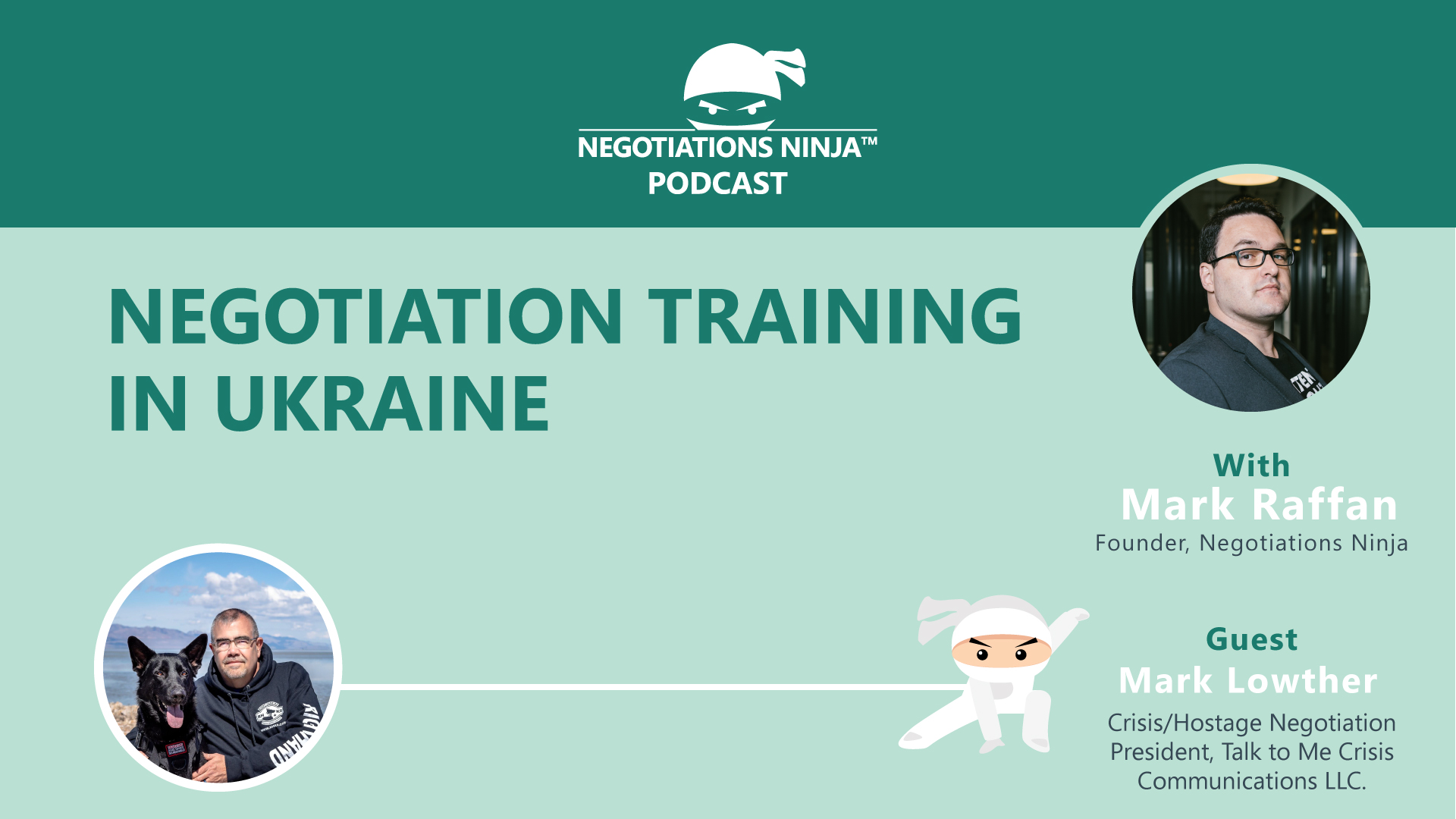Mark Lowther is an amazing hostage negotiation professional. He’s also teaching hostage negotiation, mediation, and dispute resolution techniques in Ukraine. In this episode of Negotiations Ninja, Mark gives us a boots-on-the-ground view of what’s happening in the war zone.
It’s an active and dynamic situation with many variables. It’s difficult to anticipate or understand high-level moves being made and align them with the reality of what’s happening on the ground. We need to understand what’s going on so we know how to help. Learn more in this episode.
Outline of This Episode
- [2:45] Learn more about Mark Lowther
- [3:47] What Mark is doing in Ukraine
- [4:18] Traveling in and out of Ukraine
- [6:30] Negotiation training in Ukraine
- [8:04] The mistake people make with active listening
- [10:17] Dealing with emotion in a war zone
- [12:43] Adjusting to cultural nuances
- [18:10] Mark’s experience at the Russian checkpoint
- [19:55] Can the Russian-Ukraine Conflict be solved through negotiation?
- [22:18] Dissecting the mind of Putin and understanding his frame of mind
- [26:15] Will the rest of the world step in and intervene in the conflict?
The goal of negotiation training in Ukraine
Mark went to Ukraine with a non-governmental organization to train military, law enforcement, and intelligence officers on negotiation, de-escalation, and non-violent communication strategies and techniques. The bulk of his work has been spent training civilians. Why?
Eastern Ukraine is home to many Russians. In Kyiv and westward, the people are Ukrainian through and through. Certain segments in Eastern Ukraine are sympathetic to Russia (and wouldn’t mind becoming part of Russia).
These two segments of society are at odds with each other, leading to animosity and violence. The goal of his training is to teach mediation techniques to create a dialogue between the two parties.
The mistake people make with active listening
Mark emphasizes that you can’t forget to be a human being. People who are trained in active listening often sound like robots. Active listening skills should complement your basic communication skills, not make you sound scripted.
You have to have an actual conversation and put active listening into play. Mark likes to compare active listening to seasoning. If you don’t season meat, it will be bland. But if you over-season it, it won’t taste good either. It’s all about finding balance.
Dealing with emotion in a war zone
Mark points out that to have any successful negotiation or mediation, you have to understand how each side feels. The people he’s training are going back to Eastern Ukraine or into areas currently occupied by Russia. No one—including trained negotiators—can make good decisions when they’re emotional. You have to control your emotions and take others into account by putting yourself in their shoes.
Years ago, legislation was proposed that would outlaw the use of the Russian language in Ukraine. How would that make you feel if you were born and raised speaking Russian? Can you understand why the people might be upset with the Ukrainian government?
You have to take in everyone’s perspective. You can’t barge in like a bull expecting to change someone’s mind. You need to sit down and have a conversation and listen to their side. Educate yourself before you try winning hearts and minds.
Mark shares more about what’s happening in Ukraine and what everyone can do to help in this episode. Be sure to listen.
Connect with Mark Lowther
- Connect on LinkedIn
Connect With Mark
- Follow Negotiations Ninja on Twitter: @NegotiationPod
- Connect with Mark on LinkedIn
- Follow Negotiations Ninja on LinkedIn
- Connect on Instagram: @NegotiationPod




